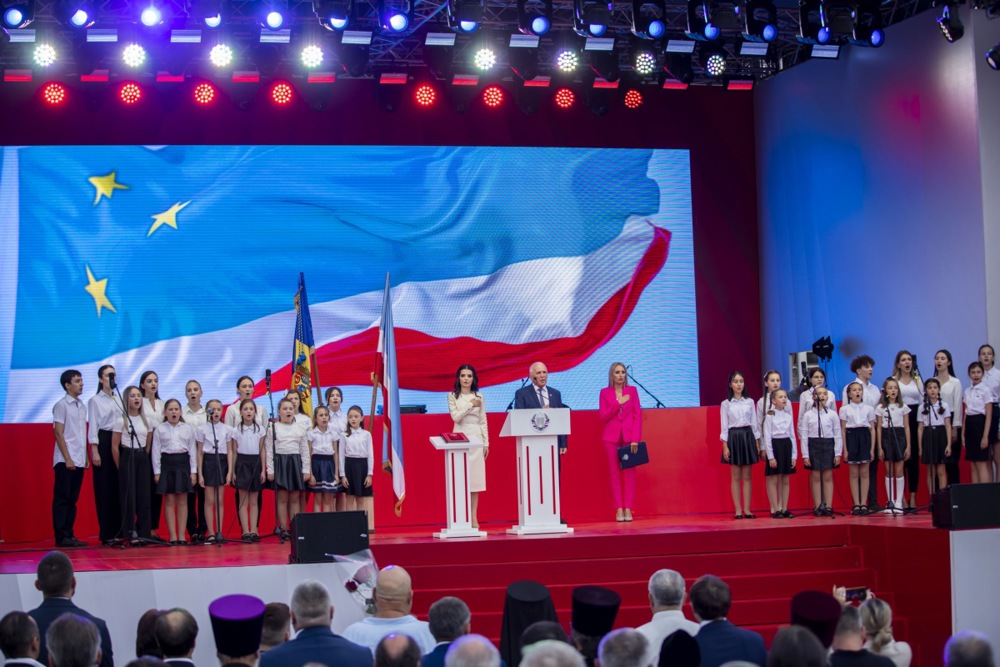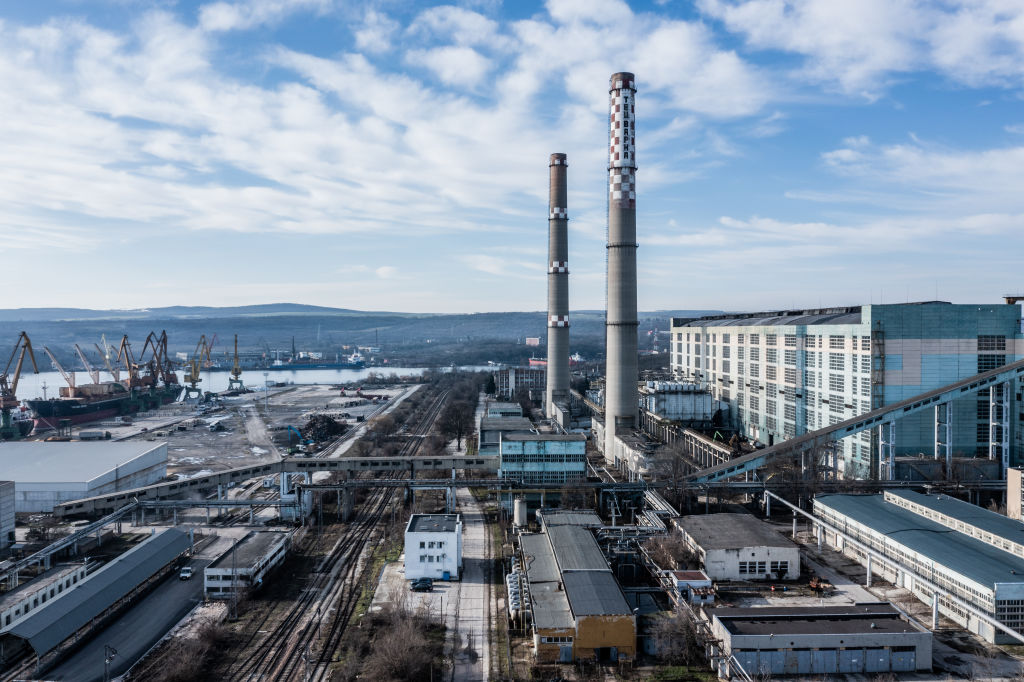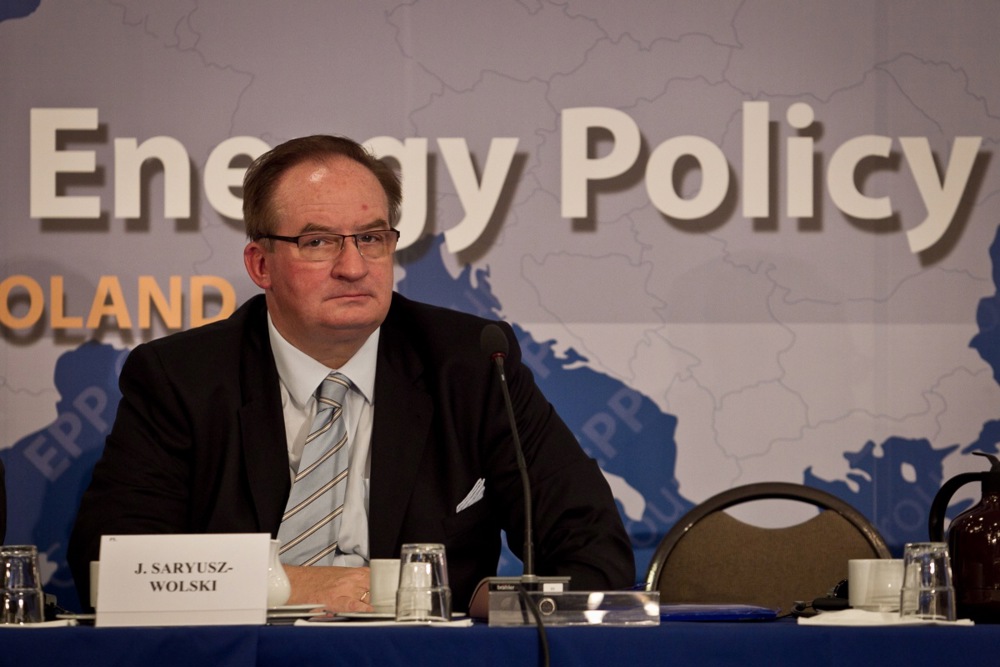When the EU aims to stop relying on Russian oil and gas by 2027, it is bizarre an enterprise wholly owned by a Member State is working assiduously on a project that will frustrate the EU’s aim.
What is perhaps more bizarre is this is happening in plain sight.
President Putin is very clear about his ambition to turn Turkey into a gas hub for Europe. Last year he put this idea forward as a way to compensate for the gas transit capacity lost with the end of the Nord Stream pipelines.
Ankara is equally open about its desire to become a major gas corridor to Europe, saying its Thrace region bordering Bulgaria and Greece would be the ideal location for a gas hub, and suggesting its state-owned BOTAS has the interconnectors to service a Russian hub.
Last October, AP reported Turkey’s President Recep Tayyip Erdogan had confirmed his government and their Russian counterparts had been instructed “to immediately begin technical work on the Russian proposal”.
The same report quotes Turkey’s foreign minister saying Putin proposed shipping Russian gas “to European countries that want it because he no longer considers Nord Stream 1 and 2 to be reliable conduits”.
While Russia and Turkey were discussing plans for a Russian hub, Bulgaria was going through political churn. A series of elections in 2021 and 2022 failed to produce a stable government.
Periods of political churn offer powerful bureaucratic institutions opportunities to move matters in directions that protect their interests.
While Bulgaria’s political drama was playing out, talks began between Bulgaria’s state-owned BEH and its Turkish counterpart BOTAS.
Bulgaria’s state-owned BEH and its wholly-owned subsidiaries Bulgargaz and Bulgartransgaz have a record of resisting reform, obstructing fair competition, denying competitors access to infrastructure, and generally frustrating the key objectives of the EU’s Third Energy Package (which separates supplying energy from supplying networks for transmitting it).
Talks between the state-owned entities concluded 3 January with a formal agreement between BEH, Bulgargaz, Bulgartransgaz, and BOTAS.
The agreement was signed in the presence of Bulgaria’s and Turkey’s energy ministers, signifying both capitals’ political support for the deal. In the case of Bulgaria that support has shifted.
The Bulgarian minister, Rosen Hristov, praised the agreement saying it would solve Bulgaria’s lack of infrastructure for unloading liquefied natural gas, securing “the possibility (for Bulgaria) to buy gas from all international producers and unload it in Turkey, where it’s most convenient for us logistically”.
Reuters reports the Minister as adding while Bulgaria cannot “control what gas will enter Bulgaria”, it “ would make sure it signs deals for LNG deliveries that are not from Russia.”
Minister Hristov’s Turkish counterpart said the agreement allows Bulgaria to transport about 1.5 billion cubic meters of gas a year, helping to increase security of supplies in south-eastern Europe.
Details of the Deal
Full details of the BOTAS – Bulgargaz agreement have not been published. The details that have emerged, however, suggest the agreement could be a costly mistake for Bulgaria and a blow to EU ambitions to control the source of the energy it uses.
The agreement reserves the entire capacity at the key interconnection point between the Bulgarian and the Turkish gas transmission networks (Malkoclar/Strandzha) exclusively for BOTAS and Bulgargaz.
Third parties will not be able to book capacity at this interconnection point. This essentially closes that border for traders – other than BOTAS and Bulgargaz – who want to import liquid natural gas (LNG) through Turkish LNG terminals.
This strengthens Bulgargaz’s stranglehold on competition. The company already holds the ability to block gas entry points at the Greek border and deny competitors capacity at Greek LNG terminals.
While this may look like a win for Bulgargaz, BOTAS and Bulgargaz are not equal players in the deal: BOTAS is in the driving seat. Elements in the agreement suggest Bulgargaz may well have bitten off more than it can chew.
Bulgargaz has to pay BOTAS a €2 billion annual service fee. This gives Bulgargaz capacity to import 1.85 billion cubic metres of gas, roughly 60 per cent of Bulgaria’s annual demand, through the Malkoclar/Strandzha interconnection point. Bulgargaz has to pay the fee whether it uses its full capacity or not.
The €2 billion service fee, besides placing a potentially eye-watering financial burden on Bulgargaz, gives the company more incentives to continue if not increase its long-standing policy of suppressing private sector competition in the Bulgarian market.
The agreement also gives Botaş access to Bulgarian pipelines, for which it will pay transit fees around €138 million a year. The deal also lets Botas sell gas to consumers in Bulgaria and in neighbouring countries, ironic given Bulgargaz’s antipathy to homegrown competition on the Bulgarian market.
Opposition to the Deal
From the outset, the European Energy Traders Association EFET raised general concerns regarding the lack of transparency about the agreement. It also flagged specific concerns on particular parts of the deal as information became available.
In a submission 23 January to the European Commission and the Bulgarian National Assembly, EFET asked how the agreement will be regulated. It asked what rules would apply to BOTAS and Bulgargaz and questioned who would oversee the agreement’s operation.
The Association also queried how much access to transmission capacity would be available for private operators, highlighted the preferential access the agreement gave Bulgargaz, and pointed out that discriminatory access to transmission capacity would further hinder competition in the Bulgarian market.
Highlighting a concern the deal would offer “suboptimal market conditions” to other licensed gas traders, EFET asked the European Commission to examine whether the agreement had an overall anti-competitive effect and whether it met EU market principles.
EFET and private sector energy traders were not alone in their concerns about the BOTAS – Bulgargaz agreement.
Bulgarian Government Alters Position
In April 2023, just eight weeks after the agreement was signed, Bulgaria held its fifth general election in two years. On 6 June a new Bulgarian government formed.
Incoming Prime Minister Nikolay Denkov took a significantly different view of the BOTAS – Bulgargaz deal than his predecessor. He called the agreement “non-transparent and unprofitable”. Bulgaria’s incoming energy minister warned that the deal could cost billions without delivering any benefit.
On 3 August the Bulgarian Government said it would investigate the gas supply deal as part of a review of the policies of the technical Government that preceded it. In October the new administration introduced a swinging tax on Russian gas transmitted over Bulgarian territory. It announced the measure days after imposing a 60 per cent tax on profits on a Russian-owned Lukoil oil refinery.
Bulgaria’s finance minister described the transit tax as in line with the EU’s aim of reducing its dependence on Russian fossil fuels, and said the aim was not intended to make gas more expensive for consumers in Hungary and Serbia, but to make it less profitable for Gazprom to ship gas via Bulgaria.
The tax changes were interpreted by many observers as an attempt to undo some of the reputational damage the BOTAS-Bulgargaz agreement did to Bulgaria in the eyes of Brussels and EU partners.
The EU Commission steps in
On 20 October the European Commission announced it too was launching an examination of the BOTAS-Bulgargaz agreement.
The announcement is a welcome development. The agreement shows scant regard for EU norms. The background against which it was prepared does not align in any way with the EU’s interests.
The details of the deal that are available, and reports of a requirement obscuring the origins of gas coming into the EU, raise a red flag the agreement is an ill-disguised back door for Russian gas.
The Commission through intervening in the BEH case and its efforts to establish a gas release programme attempted to promote reform in the Bulgarian gas market. The improvements its interventions achieved were quickly reversed.
The multiple flaws contained in the BOTAS-Bulgargaz agreement give the EU Commission a chance to take a hard look at what has happened in the Bulgarian energy market since Bulgaria’s EU membership, and at how a state-owned enterprise with a dogged determination not to comply with EU norms has held Bulgaria back. Hopefully, the Commission will take full advantage of that opportunity.
Dick Roche served as Ireland’s Minister for European Affairs and Minister for Environment and Local Government





Are we again seeing ‘mass formation’ neuroses in Europe over Palestine?